FASCIST MUSIC
 Ah, the late Olivia-Newton John. For people of a certain age, she was a national treasure. I am not of that age. But I respect that she briefly and spectacularly charmed Generation X in their formative years. Everything about her was a little fascist, from the perfect hair and teeth to the tiny amount of faux sweat or dirt her dramatic and musical characters would apply in order to get street credibility. "Magic" is her fascist apex. Musically, it sounds like a coke den. This is particularly true in the main riff, a dissonant two-note half-step. Lyrically, I don't know how it could be more fascist; it consists of a set of orders from an omnipotent, supernatural, and ostensibly benevolent narrator. The video looks like a coke den except for ONJ herself, who is still wearing the headband from "Physical" just like Mussolini wore his trademark sashes so the peasants would instinctively fear him. And the context was the soundtrack for an overwrought, soulless, expensive, spectacularly disastrous movie that forever became shorthand for failure: Xanadu. So yeah, fascist. But RIP.
0 Comments
1982's Trans is an incredible artifact. It's mostly anti-fascist, but it's got some obviously fascist elements, so it fits here, and its story is just wild.
If "Neil Young's synth album" isn't enough for you, consider a few things: - It is almost entirely sung through a vocoder. - It is almost completely indecipherable. This was on purpose. Young's son was born with severe cerebral palsy and the fog of synth and vocoder was meant to represent his son's efforts to communicate. - Scattered amidst such deeply inaccessible electronic tracks as "Computer Age," "Computer Cowboy," and "We R in Control," are some light, organic country-blues songs that sound like they were lifted from another album. In fact, they were! That album, per Young, was "a tropical thing all about sailing, ancient civilizations, islands and water." - This was the first album Young recorded for his new label, Geffen. It was such a colossal fuck you, as well as a commercial and critical bomb, that the label sued him for deliberately sabotaging himself by releasing "uncharacteristic" material. This album is fascist in all the obvious ways. Computers dominate the landscape lyrically and musically, to the point that Young himself is a computer. The album art shows a computerized graph-paper hologram man hitchhiking toward a dystopian metropolitan future in some kind of DeLorean, while a shaggy guy heads to the woods in some old hearse. But in deeper, more important ways, it's anti-fascist. Young's son was crying out to be heard, a lone, small voice in a world that had no time for him. That effort was worth something. Young himself mimicked it, and when his strained falsetto occasionally breaks through the vocoder, it is actually stirring. And yes, hologram man is off to town on the cover. But where is the shaggy guy going? Off to foment revolution, probably. There's hope on Trans. Robert Palmer was the puppet master of the beautiful, drugged, stylish, vacant mannequins in his video for "Addicted to Love." The song is anonymous 80s meat. The video deliberately exaggerates a misogynistic aesthetic, complementing the droning guitars and drug-pun-rich lyrics. This vacuous fascist fashion is how Robert Palmer is remembered, if at all. Speaking of remembrance, I was struck, upon Palmer's death in 2003, at how anticlimactic it was. I didn't expect his death to cause global mourning as with Frank Sinatra, George Harrison, Jerry Garcia, or even Warren Zevon, but I thought he might merit a bit more than this cursory, loveless obituary. No tears for a craven 80s schlockmeister, I concluded.
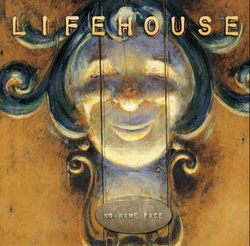 If you want a fascist record, it helps to start with a fascist title. The faceless boys from Lifehouse (where are they from? Do you have any idea? L.A.) could hardly do better than "No Name Face." The music itself is dead-ass rock, otherwise known as "butt rock." Distorted guitars playing lead over a gloomy bed of crunchy acoustic and electric guitars, with a gutteral vocal buried deep in the mix. You know the type: Goo Goo Dolls, Fuel, Creed. The post-grunge rejection of personality. All duly fascist. What makes No Name Face particularly interesting as a fascist artifact is its timing. This album, released in May 2000, bridged the gap between an era in which rock was the dominant form of music (albeit in depleted form, with Matchbox 20, Vertical Horizon, and Creed leading the way) to an era in which rock was unquestionably dead. No Name Face and its single "Hanging by a Moment" owned 2001, with "Hanging by a Moment" Billboard's top single of the year. When No Name Face exited the charts in September 2001, the world was different. J.Lo, Alicia Keys, and Destiny's Child ruled music. R & B would eventually pass the torch, but never again to rock. Exactly one band had a #1 Billboard Hot 100 hit after Lifehouse, and that was Nickelback. Lifehouse presided over rock's funeral. "Rocket 88" to "Hanging by a Moment," 1951 to 2001, R.I.P. Did Lifehouse kill rock? Probably. "Hanging by a Moment" was ubiquitous in 2001, and not in the good way. Some of the pop sheen that Third Eye Blind and Matchbox 20 had introduced into rock in the late 1990s had by then become rote formula, and Lifehouse bludgeoned that formula to death. Quiet verses, big chorus, universal lyrics, strings, and even a beat drop. And a sad Vedder vocal ripoff to boot. As "Hanging by a Moment" got its millionth spin on FM radio, the world woke up from its 50-year love affair with rock and said, "This just isn't working." Nickelback was the spasm that the world curb-stomped to make sure rock never came back, but Lifehouse was the death star that did it in. The greatest musical invention of all time, the language of freedom, the symbol of rebellion, the vehicle for Dylan's poetry, the actual vehicle for Springsteen, a genre so big to include Chuck Berry, Led Zeppelin, U2, and Bowie... killed by Lifehouse. I don't care if they're nice lads; they'll always be assholes for what they did to rock. You can't get more fascist than killing the people's music. David Bowie's death in January triggered many deserved tributes. He was the greatest rock star ever.
But during the 1990s (technically 1987 to 2003), he released an amazingly long and unbroken string of terrible fascist albums. It would take a perverse revisionist* -- and there were plenty in the weeks after his death -- to deny how far he fell during these years. The Cliff's Notes Bowie is this: He came on the scene in the late 1960s as a psychedelic folkie, then hit his creative stride in the early 1970s as the glam Ziggy Stardust. He soon turned to "plastic soul," the Thin White Duke persona, and mountains of cocaine. Clean by 1977, he headed to Berlin to release a trio of artsy, acclaimed albums. Then he wanted to get popular again and released a big, ominous, arena-rock album (Scary Monsters... and Super Freaks) and two popular dance-rock albums (Let's Dance and Tonight). After these commercial successes, Bowie was at a crossroads. He chose fascism.
After so many embarrassments, it was time for Bowie to finally give up, which he did. But in a happy coda, 10 years later, he released two pretty good albums, 2013's The Next Day and 2016's Blackstar. His output from 1969 to 1983 had already ensured his legacy, but these two showed he was at least capable of humor, drama, and striving -- antidotes to fascism all -- and willing to share his gifts in his waning years. *One revisionist, Jason Hartley, came up with the Advanced Genius Theory to address work exactly like Bowie's 1990s output. Per Hartley's theory, since Bowie is an acknowledged genius, it's natural that the genius present in his work would eventually exceed his audience's ability to appreciate it. The "problem," then, lies with us, not Bowie. 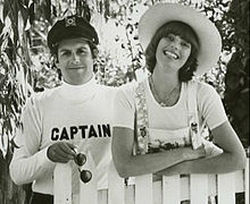 You knew it was coming! With SiriusXM's limited-run YachtRock channel burning up the airwaves, Yacht Rock hasn't been this popular since 1983. We're talking, of course, about the smooth sounds of Michael McDonald, Captain & Tennille, Christopher Cross, and other late 70s/early 80s soft rock giants. Music to chain-smoke to. Music to "not get civil rights" to. Music to play in the background while you spend idle days on a yacht. It's not necessarily music for the wealthy, but it is music for people who don't try very hard. Is Yacht Rock fascist? Of course! But don't make the mistake of conflating Yacht Rock and fascist music into one. Yacht Rock is a type of fascist music - and yes, all Yacht Rock is definitionally fascist - but doesn't represent the full breadth of fascist music. Fascist music includes post-prime rock by legacy artists, aggressively power-hungry music, selling out, corporate music, facelessness, suffocation, and more. Yacht Rock represents a great dimension of fascist music: the brown-stained, corporate, sinister, idle, daft music of the shittiest 10 years of the 20th century. But there's more. Enjoy the waning days of the YachtRock channel on SiriusXM. Then check back in with us to see what fresh hell we can get into. Though hostile nations surrounded me, I destroyed them all in the name of the LORD. -- Puff Daddy, "Forever (Intro)"
The music itself is halfway awesome but allway fascist. The holy+confrontational pose Did assumes on the cover extends to every track. It's the 2-minute choral intro from "I'll Be Missing You" in extended play. But instead of mourning Big, he's extolling himself as some kind of bedeviled Messiah -- an "Angel with a Dirty Face," to quote one track's title. Granted, this was de rigeur in late-90s rap: 2Pac started it, Ja Rule did it (of course), DMX did it. But when you aren't actually a troubled soul -- Puff was a Howard business major and record exec straight enough to date Jennifer Lopez at the time -- then your self-immolation is mass manipulation.
The skits take some legitimately funny premises from No Way Out, like the Mad Rapper, and blatantly appropriate them. He even steals from every other rapper ever by doing a weird impression of Scarface. Classic fascism. While the skits weren't bad, highlighted by the hilarious "ad-lib Puff," retreading everyone's favorite tropes was cynical as hell. And, of course, there's Diddy's favorite weapon, the sample. Whenever rap touches into fascist territory, it is inevitably coincident with excessive sampling, like Puff or Will Smith. "Best Friend" will knock your socks off, whether or not you know it's basically a note-for-note sample of "Sailing." He's appropriating the powerful creativity of others for his own gain; pure fascism. Finally, there's the repetitiveness. While Forever is actually kind of a good album, its droning nature -- within certain tracks, not track-to-track -- is its worst quality. Would-be hits "Do You Like It... Do You Want It," "Fake Thugs Dedication," and "Angels with Dirty Faces" are undone by repetitiveness, but the nadir -- and one of the most droning songs of all time -- is the actual hit "P.E. 2000." The song was 99% terrific, including that weird lady hypeman, but the 1% killed it. GET OFF THAT NOTE!!!!!!!!!!
It's a story as old as artistic integrity: Indie rocker hits it big doing it his way and thinks he has the right to jag into something darker, label demands a more radio-friendly sound, artist balks but ultimately caves. Ryan Adams's third and Dave Matthews Band's fourth records fit the bill exactly. Adams crooned rainy-day intimacy on Heartbreaker and made a game but slightly lackluster swipe at superstardom with Gold. With Under the Table and Dreaming, Crash, and Before These Crowded Streets, DMB proved that a fervent fanbase, grassroots marketing, and great songs could overcome a lack of a genre or homerun singles. Both hit the studio in the early 2000s ready for a deep dive inward. In fact, both recorded an album's worth of despondent, spare, and uneven songs. Their respective labels were unimpressed and gently demanded that they start over: more guitars, more hooks, better work. Adams and DMB both complied. A few key differences emerge at this point, however. Adams was petulant and enraged. He thought his initial set of mopey songs, which would later be released as Love as Hell, was genius, and scoffed at his label's demand for a more rock sound. As a middle finger to his label (which, ironically, was the artist-friendly Lost Highway), he wrote and recorded a deliberately souped-up, meaningless album. Highlights (or lowlights) included a U2 parody, replete with glistening Edge-like guitar arpeggios and mock-profound lyrics ("So Alive," released as the first single); a song that sounds like an outtake from 1974 ("1974"), half an album's worth of post-grunge filler ("Burning Photographs" and "Luminol," to name two), and a song with the following lyrics: "I'm as lonely as boys / I'm as lonely as boys / I'm as lonely as monkeys taught to destroy / Anything they learn to enjoy" ("Boys"). The label released it, critics reacted with confusion or outright anger, and Adams disowned it. Ryan Adams and Dave Matthews are completely different characters, of course, and Dave's reaction matches his more earnest personality. He was just as upset as his label was that the dark, sleepy set his band recorded with producer Steve Lillywhite didn't work. So he barreled through a marathon writing and recording session with the help of pop svengali Glen Ballard, coming up with heavy, hooky songs just like Adams did. Matthews, however, wasn't joking. His band's Everyday record was just as slick, greasy, and empty as Rock N Roll, but DMB proclaimed it their best work. They cheerfully slogged through embarrassing music videos and awkwardly tried to slip dumb, offensive trifles like "I Did It" into concerts alongside their challenging and emotional repertoire. Only after fans had discarded Everyday in favor of the Lillywhite sessions did the band sheepishly and belatedly semi-disown the record. 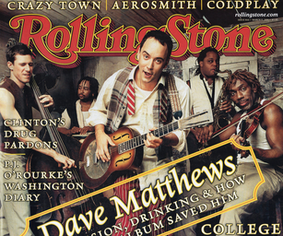 Which is the more fascist effort? Adams consciously endeavored to create a fascist artifact of "label rock," and he certainly succeeded. But you could certainly make the argument that his record, while fascist on his face, was an arch anti-fascist commentary. Everyday doesn't get to hide within the safe cocoon of snideness; the label said jump, and Dave said how high. When you think of the way DMB repurposed the tropes of their old, organic work -- the crunchy Rolling Stone cover, the crowd-chant of "Everyday" -- you're left with the inescapable sense of dread that characterizes all the best fascist music. So while Rock N Roll hits more fascist notes in the absence of context, when you do consider context, as you must, Everyday is the more fascist record. Full disclosure: Rock N Roll is one of my favorite records by any artist ever. I like Everyday a lot, too. 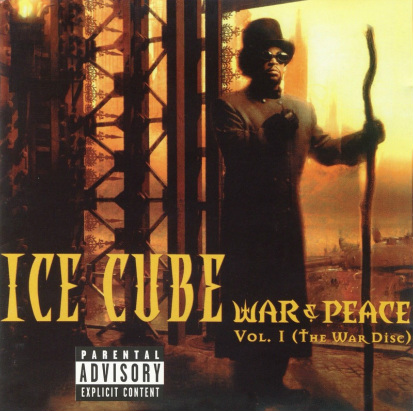 In this grim and bizarre image, Cube is styled as a top-hatted (!), cassocked ruler of a dystopian hellscape. A tank rumbles through the smoky ruins of a city, presumably commissioned by Cube to polish off the survivors. Cube, meanwhile, is insulated from the madness in some kind of iron structure that nonetheless boasts the ornate trim befitting a ruler of some kind. Cube holds a staff, crucial for the works he'll conduct as leader of this post-apocalyptic world, and with his right hand offers some sort of Illuminati salute. To top everything off, this CD cover is "3D," in the late-1990s sense of "tilt this CD back and forth, and you will perceive motion." In 1998, this packaging was neither modern nor particularly impressive, but it was expensive and maximalist. You wouldn't be crazy to consider this to be "peak CD cover." Ironically, Cube's persona on the album is the opposite of this totalitarian figure. The same bleak, fascistic atmosphere prevails, but Cube's role is that of a quasi-revolutionary on the run, working shadowy angles to defeat his enemies. With the dubiously valuable assistance of his sidekick Mr. Short Khop, Cube talks surreptitiously on cell phones, gets crippled by an assassin's bullet, and eventually slinks around the United States attempting to avoid extradition. Sure, he enjoys good moments smoking marijuana in the Hotel Niko sauna and owning "a mansion and a yacht," but he is not the solemn power figure of the cover. Maybe the cover is meant to represent Cube's successful fate following the events of the album. If so, it's a poignant reminder that deposing fascism often leads to nothing but more of it. |
What is fascist music?In Dave Marsh's 1979 review of Queen's Jazz, he wrote, "Indeed, Queen may be the first truly fascist rock band." No other word so neatly expresses supremacy of the powerful and devaluation of the individual. Archives
August 2022
Categories
All
|
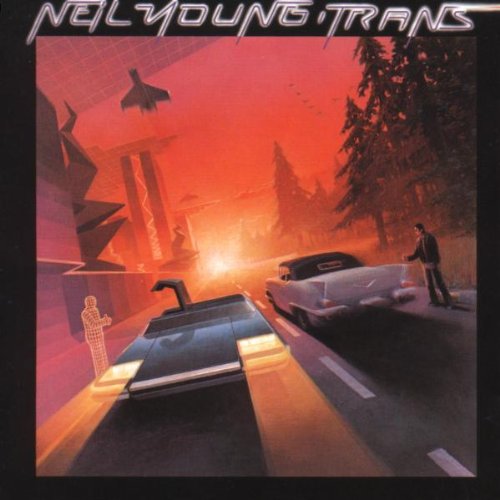
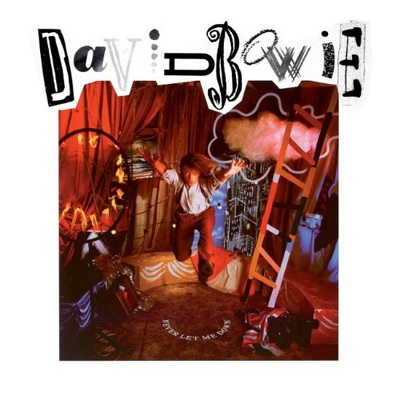
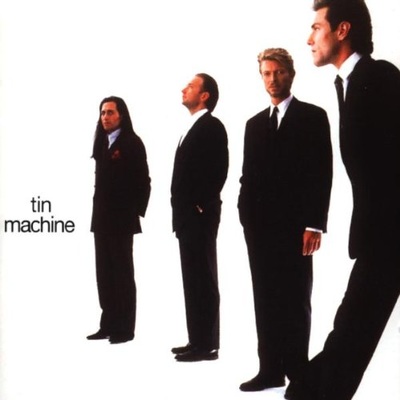
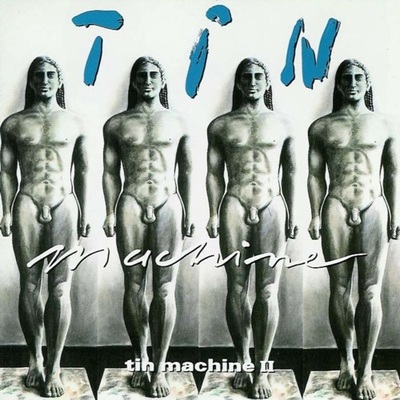
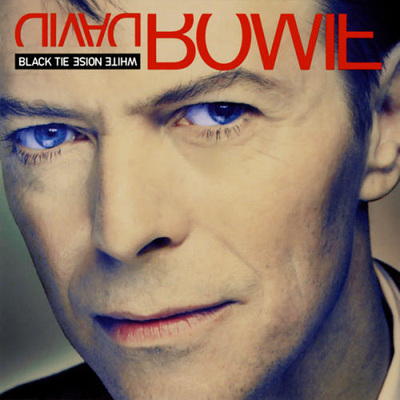
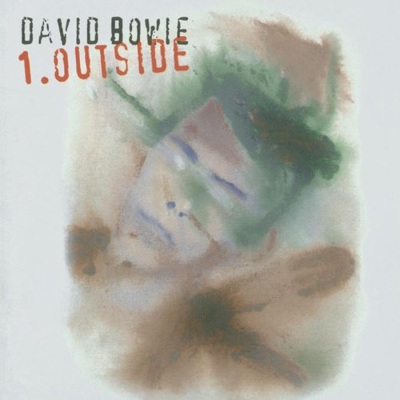
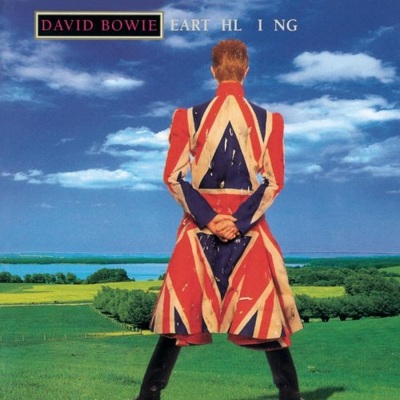
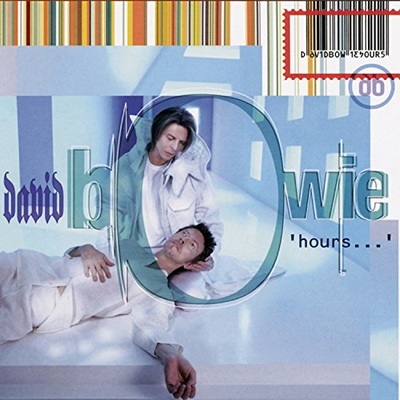
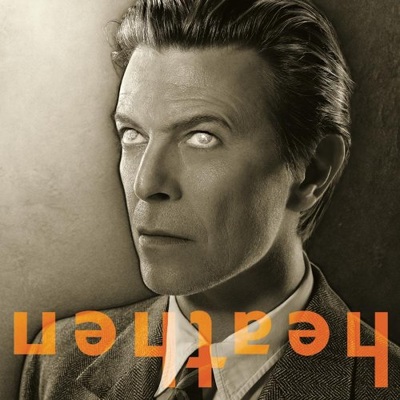
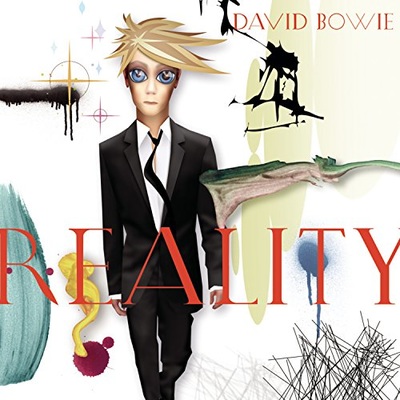
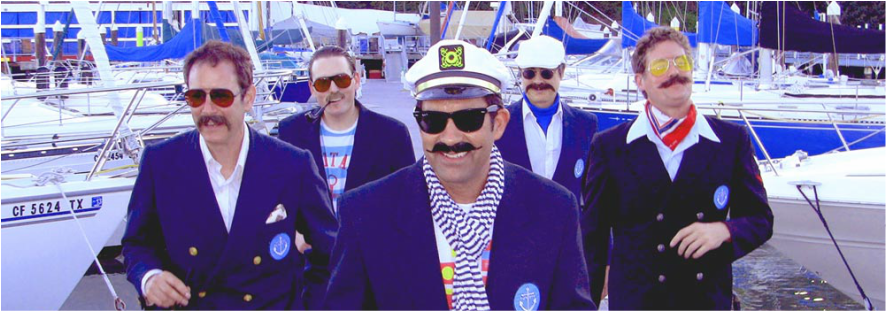
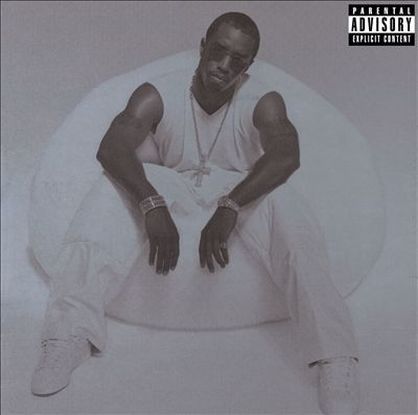
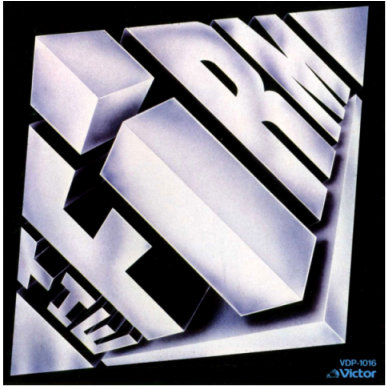
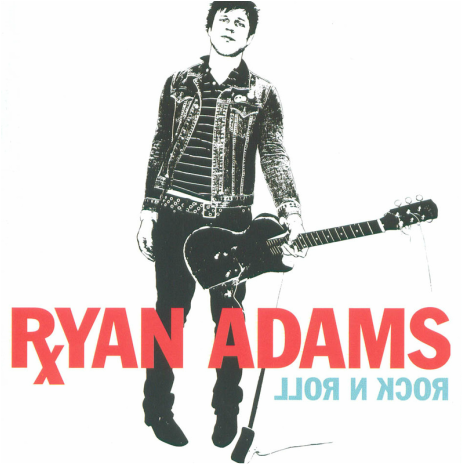
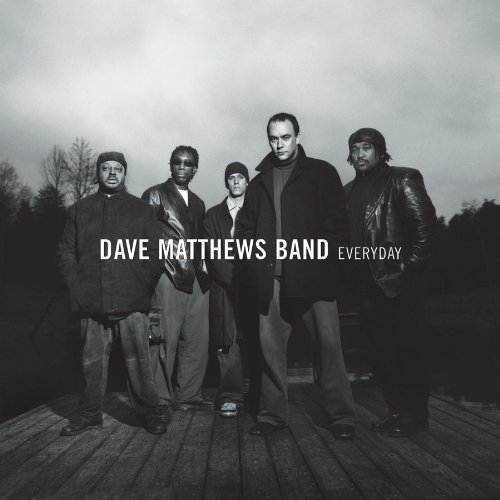
 RSS Feed
RSS Feed
